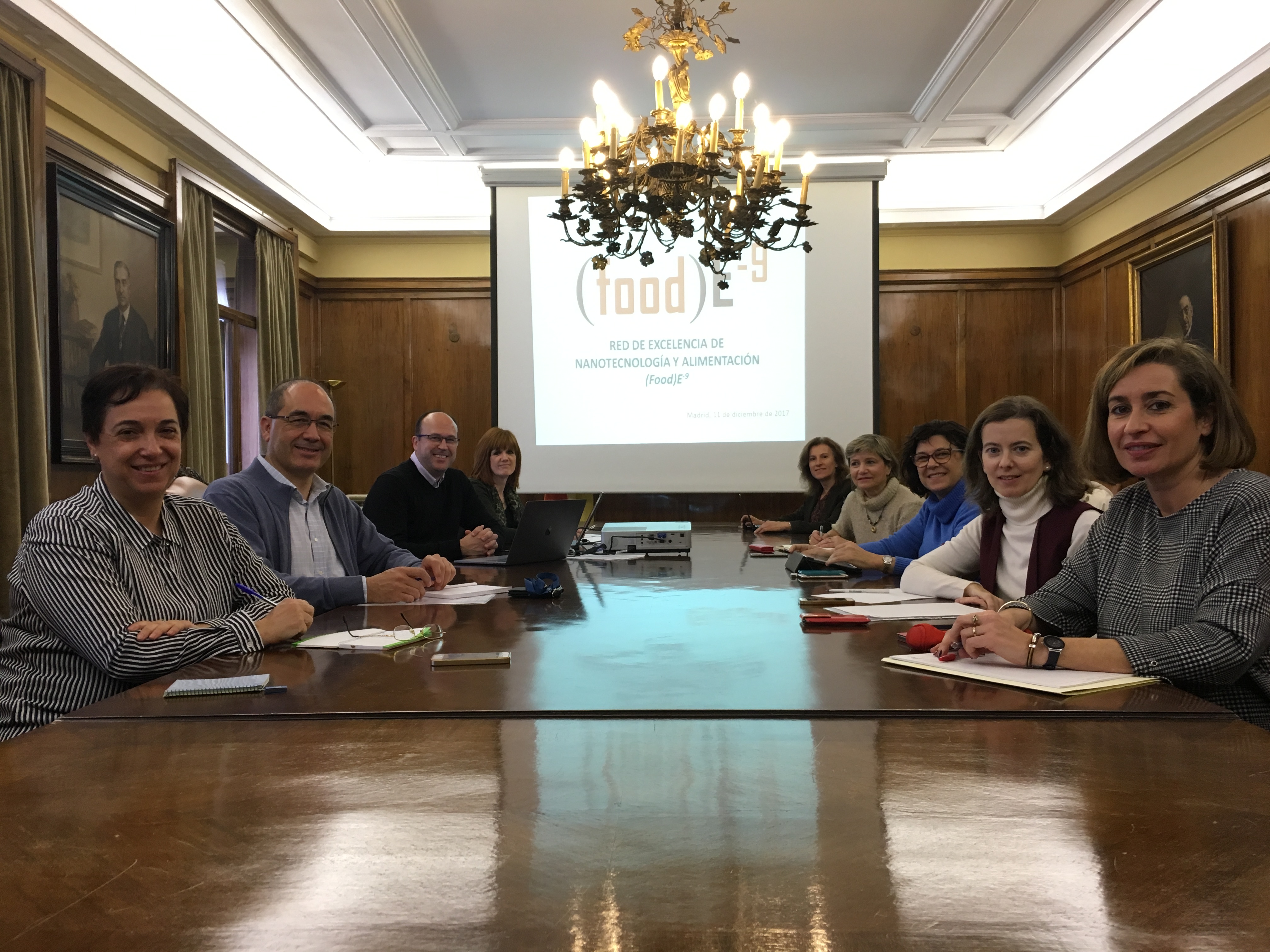Coordination meeting of the National Network for Excellence in Nanotechnology and Food
Date: 13 diciembre 2017
Section: Seguridad Alimentaria

The first coordination meeting of the National Network for Excellence in Nanotechnology and Food (Food) E-9 to which AECOSAN belongs was held on Monday 11 December.
The network (Food) E-9 was established in 2017 under the call for Networks of Excellence from the Ministry of Economy, Industry and Competitiveness. The network (Food) E-9 aims to strengthen the skills and resources available from an integral viewpoint which includes the application of nanotechnology in food, and the legal, analytical, environmental and toxicological aspects derived from its use. In this way it is to be a critical, expert voice of confidence for health and legislative authorities and for the scientific community, business sector and consumers. The National Network for Excellence in Nanotechnology and Food (Food) E-9 provides support to the already existing National Network for Nanotechnology in food and feed, coordinated by AECOSAN, and which serves as support for the Nanotechnology network of the EFSA.
With the creation of these networks of experts, the AECOSAN, as a focal point of the EFSA in Spain, promotes the strengthening of research skills and risk assessment.
The meeting was called by Dr José Manuel Barat from the Polytechnic University of Valencia, a national representative on the EFSA (European Food Safety Authority) Scientific Network for Risk Assessment of Nanotechnologies in Food and Feed, and a member of the AECOSAN Scientific Committee. The remaining members of the Network include researchers from the Universities of Madrid, Seville, Lérida, Zaragoza, Cordoba and the Basque Country, and institutions such as the Institute of Ceramics and Glass of the CSIC and the National Institute of Agri-food Research and Technology (INIA). All are engaged in nanotechnology research and have broad experience in both the area of food and in the area of the environment, packaging and measurement systems.
At the meeting, different areas of coordination for the operation of the Network were discussed. These included the preparation and planning of the activities for the circulation and promotion of the work of the Network, and the request for a COST action, training activities, workshops, conferences, congresses, all of which are principally intended to provide public administrations with the knowledge and contacts in those areas considered necessary with regard to legislation and risk analysis, and to provide the food industries with the knowledge, equipment and technologies, offering advice and services (analysis, product design, etc.). In this way, the aim is to create an inventory of national and international groups working on these issues and to organise their coordination by promoting the scientific and training cooperation of the national groups who work in different areas of the nanotechnology and food industries, together with the internationalisation of these national groups, encouraging their participation in European projects.